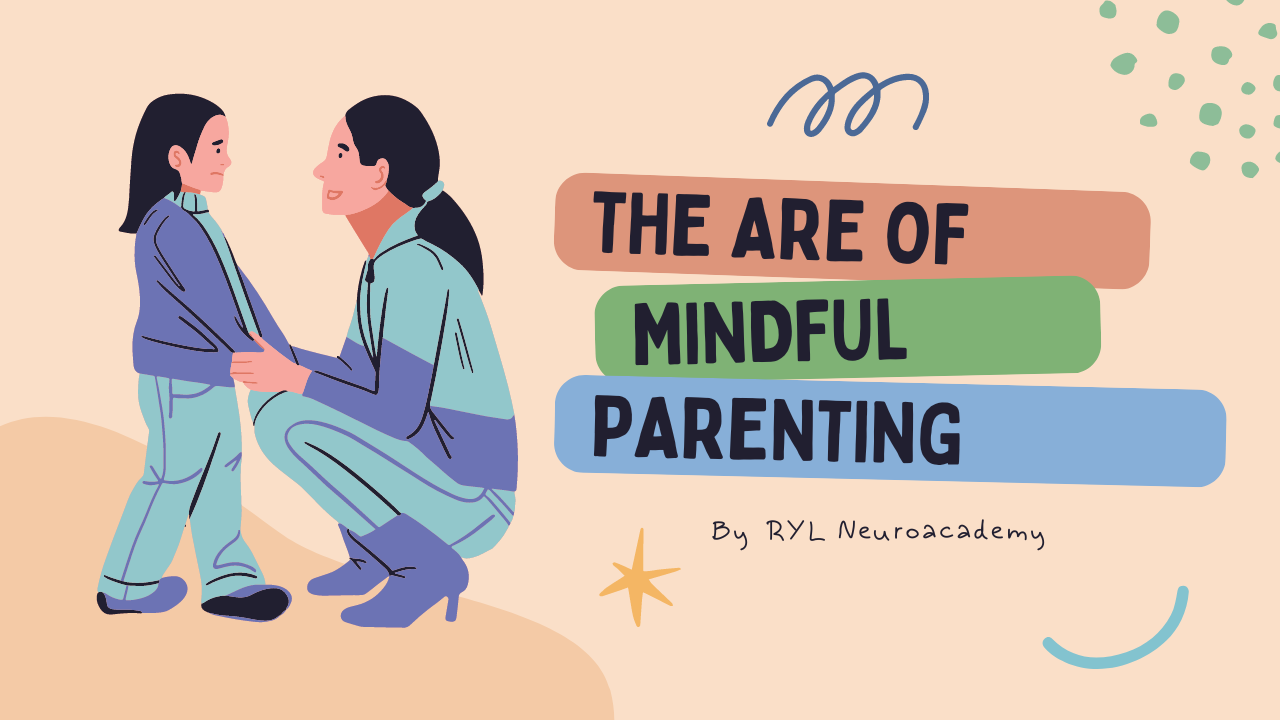I. Introduction to Mindful Parenting

Parenting is a rewarding yet challenging journey that requires patience, understanding, and love. But have you ever considered the concept of mindful parenting? Let’s delve into what mindful parenting entails, explore the benefits it offers, and address some common misconceptions surrounding this approach.
Understanding the Concept of Mindful Parenting
Mindful parenting involves being fully present and engaged with your children, focusing on the present moment without judgment. It emphasizes compassion, empathy, and non-reactivity towards your child’s emotions and behaviors. By practicing mindful parenting, you can cultivate a deeper connection with your children and foster a positive parent-child relationship.
Benefits of Practicing Mindful Parenting
Mindful parenting has numerous benefits for both parents and children. It can help reduce stress, improve communication, enhance emotional regulation, and promote overall well-being. By being more mindful in your parenting approach, you can create a harmonious and supportive environment for your family to thrive.
Common Misconceptions about Mindful Parenting
There are misconceptions that mindful parenting requires perfection or that it is time-consuming. However, mindful parenting is not about being a flawless parent but rather about being aware, compassionate, and willing to learn from your experiences. It can be integrated into your daily routines and interactions with your children, creating a more fulfilling parenting journey.
II. Building Strong Foundations

To practice mindful parenting effectively, it is essential to focus on building strong foundations that support a healthy parent-child relationship.
Self-Awareness and Emotional Regulation
One key aspect of mindful parenting is self-awareness, understanding your triggers, emotions, and reactions. By cultivating emotional regulation skills, you can model healthy coping mechanisms for your children and create a more calm and nurturing environment at home.
Creating a Supportive Environment
A supportive environment plays a crucial role in nurturing a child’s development. By providing love, understanding, and acceptance, you can help your children feel safe and secure, fostering their emotional well-being and self-esteem.
Importance of Quality Time and Communication
Spending quality time with your children and engaging in open, honest communication are vital components of mindful parenting. By actively listening to your children, expressing empathy, and being present in the moment, you can strengthen your bond and create lasting memories together.
III. Practicing Mindful Discipline

Discipline is an integral part of parenting, but mindful discipline takes a different approach to shaping children’s behavior.
Setting Clear Boundaries with Empathy
Mindful discipline involves setting clear and consistent boundaries grounded in empathy and understanding. By using gentle guidance and positive reinforcement, you can teach your children appropriate behavior while fostering their emotional growth.
Using Positive Reinforcement Instead of Punishments
Rather than resorting to punishments or rewards, mindful parenting emphasizes positive reinforcement to reinforce desired behaviors. By praising your children’s efforts and accomplishments, you can boost their confidence and motivation to succeed.
Teaching Responsibility and Accountability
Mindful discipline also involves teaching children the value of responsibility and accountability for their actions. By encouraging them to reflect on their behavior, make amends when necessary, and learn from their mistakes, you can instill important life skills that will benefit them in the long run.
IV. Cultivating Resilience in Children

Resilience is a valuable trait that can help children navigate life’s challenges with grace and perseverance.
Fostering Emotional Intelligence
Emotional intelligence is a key component of resilience. By helping your children recognize and manage their emotions effectively, you can empower them to cope with stress, build healthy relationships, and adapt to changing circumstances.
Encouraging Problem-Solving Skills
Problem-solving skills are essential for building resilience. Encourage your children to approach challenges with a positive mindset, explore different solutions, and learn from setbacks. By nurturing their problem-solving skills, you can equip them with the tools they need to overcome obstacles and thrive.
Promoting a Growth Mindset
A growth mindset is the belief that intelligence and abilities can be developed through effort and perseverance. By promoting a growth mindset in your children, you can inspire them to embrace challenges, learn from failures, and strive for continuous improvement.
V. Embracing Mindfulness in Everyday Life

Mindfulness is not just a practice but a way of life that can enrich your parenting journey.
Mindful Eating and Healthy Habits
Encouraging mindful eating and healthy habits can promote overall well-being for your family. By savoring meals together, paying attention to hunger cues, and making nutritious choices, you can instill a positive relationship with food and self-care in your children.
Mindful Technology Use and Screen Time Limits
In today’s digital age, it is important to set boundaries around technology use and screen time. By practicing mindful tech habits, engaging in tech-free activities, and modeling healthy screen time limits, you can prevent digital distractions from interfering with family bonding and quality time.
Creating Mindful Rituals and Family Routines
Mindful rituals and routines can provide structure and stability for your family. Whether it’s a bedtime story, a morning meditation, or a weekly family activity, incorporating mindful rituals into your daily life can foster connection, joy, and a sense of belonging.
VI. Conclusion
In conclusion, mindful parenting is a transformative approach that prioritizes presence, compassion, and intention in your interactions with your children. By nurturing balance in your parenting journey, you can cultivate a deeper connection with your children, build strong foundations, practice mindful discipline, foster resilience, and embrace mindfulness in everyday life. Remember to set realistic expectations, be kind to yourself, and seek support when needed on your mindful parenting path.
Resources for Further Reading and Support
“The Whole-Brain Child” by Daniel J. Siegel and Tina Payne Bryson
“Parenting from the Inside Out” by Daniel J. Siegel and Mary Hartzell
FREE “NLP Master Mind programming” by ryl Neuroacademy
Link: https://www.youtube.com/watch?v=H2uj1E5awJ8&list=PLJHOuOFAmtpVpF87H4fwvUBiil0xKN1Uk
Parenting workshops, mindfulness courses, and online resources:
https://rechargeurlife.com/
VII. FAQs
1. How can I incorporate mindfulness in my busy schedule as a parent?
Incorporating mindfulness in your daily routine can be as simple as taking a few deep breaths, practicing gratitude, or engaging in mindful activities with your children, even for a few minutes each day.
2. What if my child resists or is not receptive to mindful practices?
It’s natural for children to have varying responses to mindfulness. Be patient, model mindful behaviors, and allow your child to explore mindfulness at their own pace, respecting their preferences and boundaries.
3. How can I involve my partner or co-parent in practicing mindful parenting together?
Communication is key when involving your partner in mindful parenting. Share your insights, experiences, and intentions regarding mindfulness, invite your partner to join you in mindful practices, and work together to create a harmonious parenting environment that aligns with your values.

I don't think the title of your article matches the content lol. Just kidding, mainly because I had some doubts after reading the article.
Your point of view caught my eye and was very interesting. Thanks. I have a question for you.